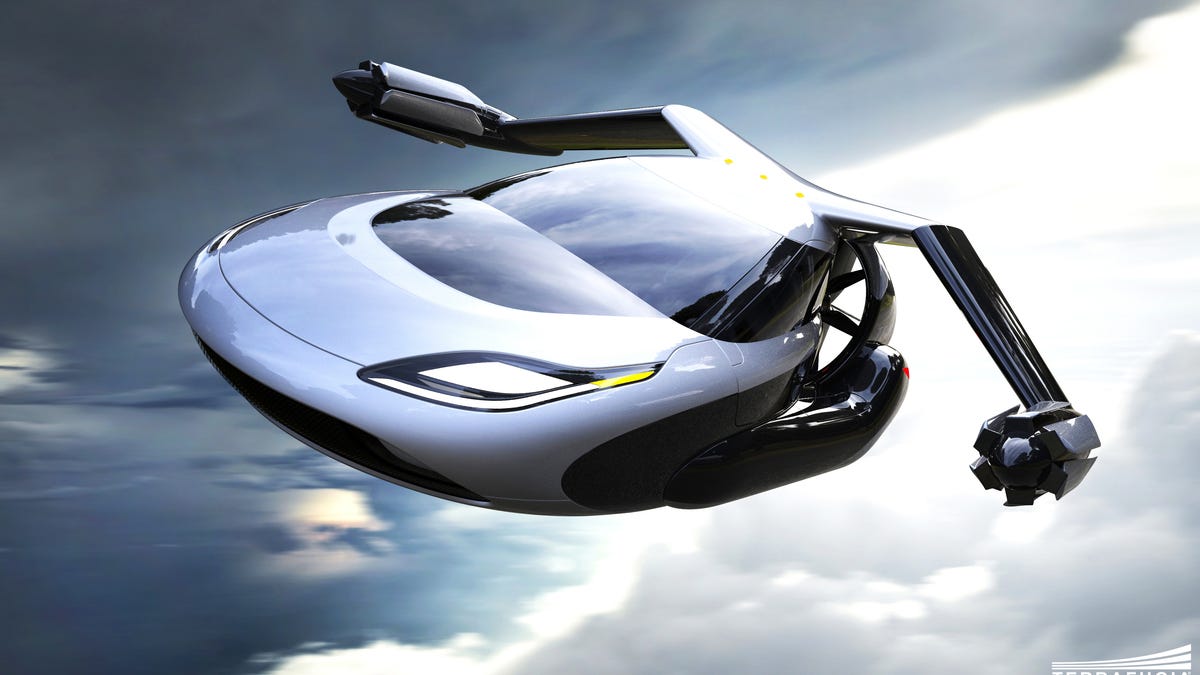Volvo parent Geely acquires flying-car startup Terrafugia
Terrafugia claims it'll deliver its first flying cars in 2019, which seems... early.
This is the TF-X, Terrafugia's idea of a VTOL flying car.
There's still a whole lot of debate as to whether or not flying cars will even come into existence. But one automaker is so aligned with the idea that it's purchased a whole startup devoted to exactly that.
Geely, the Chinese company currently in charge of both Volvo and Lotus, has completed its acquisition of flying-car startup Terrafugia, the company announced in a press release Monday. Rumors of an acquisition appeared in July, and it's apparently taken until November to finish the process.
Don't expect to see flying cars with Volvo badges any time soon. Terrafugia will remain headquartered in the US, and it will work somewhat independently, focusing on the core mission of making a car that also happens to be a plane. That said, Geely installed a new board of directors and appointed a new CEO, so there is some cross-pollination.
Five MIT grads started Terrafugia in 2006, and while its goals have been slightly delayed over the years, it's still working on an aggressive timetable. Terrafugia wants to debut its first flying car in 2019, which will operate more like a normal plane. After that, it wants to work on a VTOL (vertical takeoff and landing) flying car, which it hopes to debut in 2023.
For those of you keeping track at home with a dash of cynicism, that planned rollout is the same or faster than many automakers' planned semiautonomous and autonomous vehicles.
Considering Geely is based in China, a country rife with traffic issues, it's not hard to see why Geely feels flying cars could make waves in reducing that traffic, or at least pushing some of it to a different place. This could all very well be vaporware, but if it isn't, Geely's in a good spot with its new acquisition.
Other companies believe there's something to the idea of flying cars, too. Late in 2016, Uber released a 99-page white paper describing "Uber Elevate," an on-demand urban air transportation scheme that would utilize VTOL craft to help reduce urban ground traffic while being less noisy and expensive than traditional helicopters.


